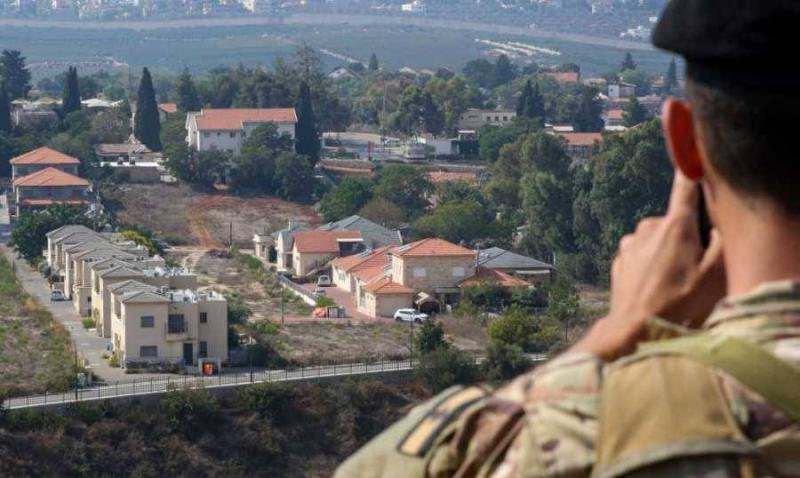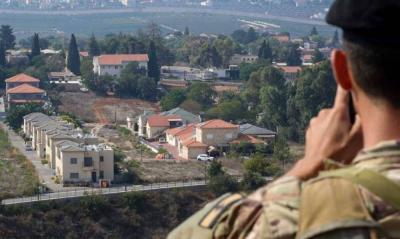The American mediator Amos Hochstein is preparing to rev up his efforts between Beirut and Tel Aviv as soon as a ceasefire or an extended truce is reached on the Gaza front. He aims to promote a comprehensive plan to be implemented in phases to stabilize the situation in southern Lebanon. This comes as he has reached a draft agreement during his previous travels between Israel and Lebanon, which is reportedly only awaiting final touches, provided that American pressure can prevent Israel from expanding the war, which has begun to verge outside the established rules of engagement due to the exchange of rocket fire between it and Hezbollah, nearly spiraling out of control.
The Speaker of the Lebanese Parliament, Nabih Berri, is negotiating with Hochstein on behalf of caretaker Prime Minister Najib Mikati and Hezbollah. He coordinates closely with them on all matters to thwart any attempts to outbid him. In his negotiations, as he mentioned, he emphasizes Lebanon's commitment to implementing UN Resolution 1701 as a basis for reaching a phased agreement mediated by the U.S. to restore calm along the southern Lebanon front, contingent upon Israel adhering to it and refraining from further violations of Lebanese airspace, land, and sea.
Berri took note of the American mediator's statement that the final stage of the agreement pertains to the land borders between Lebanon and Israel. He considered that the overarching framework of the agreement is rooted in the commitment to implementing Resolution 1701 and ending Israeli violations regarding the six disputed points, which are part of Lebanon's sovereignty over its territory. He had previously objected, noting that the Blue Line does not constitute a comprehensive withdrawal line unless Israel complies with Lebanon's demand for withdrawal from several points under Lebanese sovereignty recognized internationally.
In this context, sources close to the ongoing negotiations that President Berri has been overseeing informed that the first phase of the border agreement, reached by the American mediator during his previous trips between Beirut and Tel Aviv, stipulates restoring the situation along the southern front to what it was before October 7, 2023, before Hamas invaded Israeli settlements within the Gaza perimeter, and Hezbollah supported it in response to the war waged by Israel against the Gaza Strip.
The same sources affirmed that the commitment of Israel and Hezbollah to the first phase of the border agreement, as Hochstein termed it, would inevitably lead to the return of those displaced from both countries on either side of the Lebanese-Israeli border to their towns and villages. This return would be complemented by strengthening the capabilities of the Lebanese Armed Forces, including recruitment, training, and equipping, to enable it to control the situation south of the Litani River in collaboration with UNIFIL.
It was noted that upon reviewing the content of the first phase, it is essential to observe that there is no explicit mention of the withdrawal of Hezbollah’s Radwan forces from south of the Litani River unless the return to the period before October 7 implies that their presence at such density is no longer necessary, at least regarding the type of weaponry they possess in that area.
Regarding the second phase related to the promised economic package for Lebanon, political sources revealed that Washington is indicating readiness to reconsider its position of not allowing Lebanon to procure electricity from Jordan and gas from Egypt via Syria to enhance power supply, citing the compliance with the Caesar Act, which imposes American sanctions on the Syrian regime.
The sources noted that Washington’s permission for Lebanon to procure electricity and gas comes late, contrary to previous commitments made by the American mediator aimed at successfully reaching an agreement on maritime boundary demarcation between Lebanon and Israel. They questioned whether the U.S. would adhere to its stance or reverse it at the last moment.
Finally, the third phase pertains to determining the Lebanese-Israeli borders based on adherence to Resolution 1701. This will be closely monitored by President Berri, as it serves as the mandatory pathway to a sustainable resolution of the border agreement between the two countries. This raises the question of whether this phase will return the Shebaa Farms and Kfarshouba Hills to Lebanese sovereignty, given conflicting information about Israel's willingness to withdraw from them or to postpone discussions on these matters to a later phase since they are not covered by Resolution 1701, particularly as parliamentary delegations that visited Washington recently conveyed Hochstein's assertion that the priority is limited to calming the situation along the Lebanese-Israeli border to prevent the war from expanding, and that there is no room for discussions on the farms as long as the Syrian regime considers them part of its territory according to "Asharq Al-Awsat."




